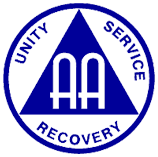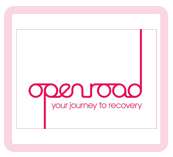
Rehab Treatment in Essex
Addiction destroys lives. At first, it might seem like an acceptable way to relax and de-stress from the hardships of everyday living. However, as time passes, it takes over your life, strains relationships with loved ones, isolates you from society, depletes your financial resources and leaves you at rock bottom.
Even when you realise that you’re suffering with mental health issues such as anxiety and depression as a result of your drug use, you’ll still struggle to quit substance abuse on your own. It’s not shameful or weak to admit that you need help to kick your addiction and learn to live an abstinent life.
Seeking help for addiction sets you on the path to recovery. If you’re ready to start your journey, there are private rehab centres and free government facilities in Essex that can help you become addiction free. The first step is to call an addiction support helpline. These are free phone and staffed by trained addiction counsellors, who are available 24/7 to provide advice & support.
 Services offered by Banbury Lodge Rehab
Services offered by Banbury Lodge Rehab
Banbury Lodge is a rehab operating in a tranquil location in Banbury, Oxfordshire. We provide excellent bespoke rehabilitation services for clients in and around this area.

Some of the services we provide include:
- Drug and Alcohol addiction treatment
- Eating disorder addiction and recovery treatment
- 12 Step Therapy
- Aftercare
- Cognitive Behavioural Therapy
- Individual Therapy
- Family Recovery Programme
- Trauma Therapy
We have a robust team of professionals operating in a world-class facility.
Banbury Lodge is located around 100 miles away from Essex. It is a two hour’s drive via M40 and M25 across Chiltern Hills AONB. We provide sober transportation service for anyone that needs it.
 Where is Banbury Lodge Based?
Where is Banbury Lodge Based?
Pros and Cons of Private Rehab?
- Immediate admission 365 days a year
- Medical detox with 24/7 care & support
- Overcome the root causes of addiction
- Experienced team of doctors & therapists
- Personalised rehabilitation programme
- Fitness and nutrition programme
- Look, feel, sleep better & regain confidence
- Learn techniques for relapse prevention
- 1 year complimentary aftercare support
- Price can be a barrier which needs to be weighed up versus the long-term cost of drug and alcohol abuse
- Being away from friends and family which at first can be emotionally challenging
 What Does Rehab Cost?
What Does Rehab Cost?
Detox and rehab starts from £834 to £2,750 per week depending on treatment length and clinic chosen
To find out further information on the cost of rehab enter you number below and one of our team will call you back
NHS Addiction Treatment
There is a process to follow if you want to access NHS treatment in Essex. It begins with a visit to your local GP or drug and alcohol service. You’ll be assigned a key worker who will establish whether you need a detox.
You’ll then be contacted by local authority services to determine whether you meet the requirements for rehab. Most treatment offered by the NHS is conducted on an outpatient basis, with rehab usually reserved for high-risk patients.
Free NHS Treatment Options in Essex

Young People's Drug and Alcohol Service:
Telephone: 08444 991323
Address: Young People's Centre, 114 Springfield Road, Chelmsford, Essex
For young people who are dealing with substance abuse, EYPDAS helps you make a full recovery. They also provide support for families affected by a loved one's substance abuse.

CGL Southend Treatment and Recovery Service:
Telephone: 01702 431889
Address: 21-40 County Chambers, 27 Weston Road, Southend-on-sea Essex
An Essex based service that provides advice, support and intervention for individuals aged 18 and above dealing with substance abuse. Services include group intervention, individual therapy, parent and care support, needle exchange, advocacy, and more.

ADAS:
Telephone: 01279 641347
Address: 118-124, The Stow, Harlow, Essex
ADAS partners with other organisations and non-profit entities to provide support for families and individuals affected by substance abuse and alcohol addiction. Services are restricted to people living in the West Essex area.

Essex STaRs:
Telephone: 01268 534475
Address: 13 Southview Road, Vange, Basildon
Essex has introduced a new way for residents to access addiction treatment, called Essex Specialist Treatment and Recovery Service (STaRs). Services include comprehensive assessment, care management, detoxification, motivational interviewing, relapse prevention planning and much more.
How to Choose a Recovery Programme
The first consideration is the type and severity of addiction. A mental health profession or drug counsellor might be a good place to start. When you call an addiction helpline, a counsellor uses research-backed methods to help you determine which treatment option is right for you.
If you recently started abusing drugs, detoxing at an inpatient detox centre and continuing treatment as an outpatient might suffice. Inpatient rehab facilities are structured and staffed with the best addiction specialists, who can help you make a full recovery from substance abuse. Research has shown that patients who stay in rehab for up to 90 days have a higher chance of maintaining abstinence than those who don’t.
There is no one-size-fit for addiction treatment. Some patients register for a 12-step programme and attend meetings stringently. Others schedule weekly/monthly therapy sessions and combine this with pharmacology for improved efficiency. The important part is to have a clear recovery plan and stick to it.
Addiction Support Groups in Essex

Cocaine Anonymous:
A fellowship of men and women who share their struggles, strength, coping skills and hope with a goal to overcome cocaine addiction. They only require that potential members have a true desire to quit cocaine and other substance abuse. Meetings are held daily throughout Essex. Locations include: Harlow, Brentwood, Romford, Stansted and Loughton. You can find more information about meeting dates and times here.

SMART Recovery in Essex:
An alternative to 12-step programmes for those who don't believe in a higher deity. This is a science-based programme that helps you manage addictive behaviour and addiction to substances.
Address: Mansard House, 107-109 New London Road, Chelmsford, CM2 OPP
Telephone: 0124528772
NA meetings in/near Essex
Narcotics Anonymous is a non-profit support group, consisting of individuals who are struggling with substance abuse. They follow the 12-step model developed by Alcoholic Anonymous. Narcotics Anonymous is not affiliated with any organisation – nor does it charge fees to its members. Membership is open to all addicts, irrespective of religion, age, class, race or gender. Meetings are guided on the principle of anonymity to allow members to attend meetings without the fear of being exposed or suffering a potential backlash.
NA Meetings in Essex
8:00pm on Tuesday
(Newcomers meeting)
Open Road, 132 Wellesley
Road, Clacton-on-Sea
5:00pm on Wednesday
Oasis Building, 65 Orset Rd,
Grays-Thurrock
(for addicts only)
8:00pm on Tuesday
Trinity Methodist Church,
Rainsford Rd

AA meetings in/near Essex
Alcoholics Anonymous (AA) is a 12-step programme for individuals trying to recover from alcohol addiction. Participants follow defined recovery steps to reach their recovery goals and maintain long-term abstinence from alcohol. The programme is based on a spiritual approach that believes healing comes from a higher power. Members subsequently admit they have no power over alcohol.
AA Meetings in Essex:
Thursday 8:00pm
United Reformed Church,
Honeypot Lane
Tuesday 7:00pm
Laindon Community Centre
Tuesday 1:00pm
Bethany room,
Our Lady of Ransom Church
Wednesday 12:45pm
Trinity Methodist Church,
461 Clayhill Road
Tuesday 7:15pm
ADAS Rooms, 118-122,
The Stow
Wednesday 1:00pm
St. Andrew’s Methodist
Church, The Stow

Addiction Counselling in/near Essex

WDP-Havering:
An integrated service from WDP for families and individuals affected by drug abuse and alcoholism. The primary base is situated on Romford High Street, but they operate from other locations across Havering. Services include one-on-one therapy, complementary therapies, group work & day programmes, aftercare services, counselling, mutual aids & support groups.
Address: Ballard Chambers, 26 High street, Romford, Greater London
Phone number: 08081681116

Open road:
Open road provides services on behalf of the NHS, Essex Drug and Alcohol Partnership, Community Safety Partnership and more. They provide counselling services for those dealing with mental health disorders and addiction.
Address: 5a Queen Street, Colchester
Phone number: 01206766096
How Can I Get To and From Essex

If you're driving from London City Airport to Chelmsford, the fastest route is via Newham Way (A130) from Hartmann Connaught Bridge. Continue until you reach the M25 and A12 to Chelmer Rd. Continue on Chelmer Rd to Sandford Road, which brings you to Stump Lane.
If you’re travelling to Southend-on the sea by rail, there are two direct rail lines between Southend-on-Sea and London. Travel is between 45 minutes and up to an hour.
Are you heading home after staying at a rehab facility in Colchester? If so, there is a bus station on Osbourne Street (in the town centre) that runs regionally and locally.

